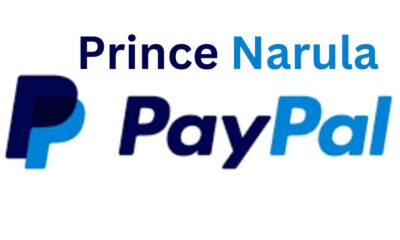TECHNOLOGY
Discover the Latest Innovations in Swiss Tech: A Deep Dive into Cutting-Edge Technology

Welcome to the heart of innovation, where precision meets excellence and quality is a way of life. Switzerland, a country renowned for its picturesque landscapes and Swiss watches, is also making waves in the world of technology. Join us on a deep dive into the latest innovations in Swiss tech – from groundbreaking robotics to sustainable energy solutions and cutting-edge medical advancements. Get ready to be inspired by the ingenuity that defines Swiss technology!
The Swiss Reputation for Precision and Quality
Switzerland is renowned worldwide for its reputation for precision and quality in various industries. The Swiss have a long-standing tradition of excellence, with meticulous attention to detail ingrained in their culture. This dedication to perfection has made Swiss products synonymous with high standards and reliability.
From luxury watches to medical equipment, Swiss craftsmanship consistently sets the bar for quality. Precision engineering is a hallmark of Swiss manufacturing, where every component is meticulously crafted to exact specifications. This commitment to accuracy ensures that Swiss-made products are not only reliable but also built to last.
The emphasis on precision extends beyond just manufacturing; it permeates all aspects of Swiss life. Whether it’s banking, chocolate making, or technology development, the Swiss approach everything with an unwavering commitment to excellence. Customers around the globe recognize and appreciate the superior quality associated with products bearing the “Swiss Made” label.
Innovation paired with a relentless pursuit of perfection has solidified Switzerland’s position as a global leader in delivering top-notch goods and services across various industries. The next time you encounter a product from Switzerland, rest assured that it embodies the unmatched precision and quality that define Swiss craftsmanship.
Innovative Companies Leading the Technological Advancements
Switzerland is home to a vibrant tech scene, with innovative companies spearheading technological advancements across various industries. These trailblazing firms are constantly pushing the boundaries of what is possible, driving progress and shaping the future.
From cutting-edge software developers to revolutionary hardware manufacturers, Swiss tech companies are at the forefront of innovation. Their commitment to excellence and forward-thinking approach have positioned them as leaders in the global tech landscape.
With a strong emphasis on research and development, these companies are continuously striving to develop new solutions that address complex challenges. Through collaboration with academic institutions and industry partners, they leverage collective expertise to drive meaningful change.
By harnessing emerging technologies such as artificial intelligence, blockchain, and Internet of Things (IoT), these companies are revolutionizing how we live, work, and interact with the world around us. Their disruptive innovations have the potential to reshape entire industries and improve our quality of life.
Robotics and Automation in Swiss Manufacturing
Switzerland, known for its precision and innovation, is at the forefront of robotics and automation in manufacturing. Swiss companies are embracing cutting-edge technologies to streamline production processes and increase efficiency.
Robots have become integral in Swiss manufacturing facilities, performing tasks with speed and accuracy that surpass human capabilities. Automation systems are revolutionizing the industry by reducing costs and minimizing errors.
With a strong focus on quality control, Swiss manufacturers use robotics to ensure each product meets strict standards. These advanced systems enable precise assembly and testing procedures, resulting in consistent output.
The integration of artificial intelligence into robots further enhances their capabilities, allowing for adaptive decision-making based on real-time data analysis. This level of sophistication sets Swiss manufacturing apart from competitors.
As technology continues to evolve rapidly, Switzerland remains committed to staying ahead of the curve in robotics and automation. The future holds exciting possibilities for even greater advancements in this field.
Sustainable Energy Solutions: Focus on Solar Technology
Swiss Tech is at the forefront of sustainable energy solutions, with a strong focus on solar technology. The commitment to harnessing the power of the sun for clean energy production has led to remarkable innovations in this field. Companies in Switzerland are continuously pushing boundaries to improve efficiency and affordability of solar panels.
One key area where Swiss Tech excels is in developing integrated systems that combine solar technology with storage solutions. This approach ensures a steady supply of renewable energy even when sunlight is not available. By maximizing energy capture and minimizing waste, Swiss companies are paving the way for a greener future.
Moreover, advancements in solar technology have made it more accessible to homes and businesses alike. The sleek design and high performance of Swiss-made solar panels make them an attractive choice for those looking to reduce their carbon footprint while saving on electricity bills.
In essence, Swiss Tech’s dedication to sustainable energy through solar technology showcases its commitment to environmental stewardship and technological innovation.
Medical Breakthroughs and Advancements in Healthcare Technology
Switzerland is not only known for its precision watches and delicious chocolates but also for its significant contributions to the healthcare technology sector. The country has been at the forefront of medical breakthroughs, continuously pushing boundaries and improving patient care.
In recent years, Swiss companies have developed cutting-edge healthcare technologies that have revolutionized the industry. From advanced medical imaging systems to AI-driven diagnostics, Switzerland continues to innovate and pave the way for a healthier future.
One area where Swiss tech excels is in personalized medicine. By utilizing genetic data and analytics, researchers are able to tailor treatments specifically to individual patients, leading to more effective outcomes and reduced side effects.
Moreover, Switzerland’s commitment to research and development has led to groundbreaking advancements in areas such as telemedicine, robotic surgery, and wearable health devices. These innovations not only enhance patient care but also streamline processes within healthcare facilities.
As we look towards the future of healthcare technology in Switzerland, one thing is certain – innovation will continue to drive progress and improve quality of life for people around the world.
TECHNOLOGY
Exploring the Aesthetic: Isabelle Lynn Kertzie’s Instagram Journey

Isabelle Lynn Kertzie has taken Instagram by storm, drawing in an audience captivated by her unique aesthetic. With a keen eye for detail and an innate sense of style, she transforms everyday moments into visual poetry. As you scroll through her feed, it’s clear that each post is more than just a snapshot; it’s a carefully curated piece of art that resonates with thousands. But how did this ordinary social media experience evolve into the stunning journey we see today? Let’s delve deeper into Isabelle’s Instagram adventure and uncover what makes it so special.
From ordinary posts to curated aesthetic: Kertzie’s evolution on Instagram
Isabelle Lynn Kertzie’s Instagram journey tells a captivating story of transformation. Initially, her posts reflected everyday moments—snapshots of life that resonated with many.
As she explored her creative side, those ordinary images began to shift. Each post became more intentional, weaving together themes and colors that spoke to her unique style. Kertzie embraced visual storytelling, moving away from random uploads.
Her feed blossomed into a curated aesthetic that caught the eye of followers everywhere. Every photo seemed purposeful and thought-provoking—a reflection of not just what she saw but how she felt.
This evolution didn’t happen overnight; it was a gradual process filled with experimentation and self-discovery. With each new post, Isabelle showcased not only artistry but also an evolving identity within the vast landscape of social media culture.
The impact of Kertzie’s aesthetic on her followers and the social media community
Isabelle Lynn Kertzie’s Instagram aesthetic has become a vibrant source of inspiration for many. Her carefully curated visuals resonate deeply with followers, creating a sense of connection and community.
Each post invites her audience into a world filled with color, texture, and emotion. This artistic approach encourages others to explore their own creativity. Followers often find motivation in the way she presents everyday moments through an imaginative lens.
Kertzie’s aesthetic also fosters engagement within the social media landscape. People flock to her posts not just for visual pleasure but also for shared experiences and ideas. The comments section buzzes with conversation, as fans exchange thoughts on their favorite elements or styles inspired by her work.
In this era of constant scrolling, Isabelle’s feed stands out as a reminder that beauty can be found in both simplicity and complexity alike.
Behind the scenes: How Kertzie creates and maintains her aesthetic
Isabelle Lynn Kertzie’s aesthetic is not just a happy accident; it’s the result of careful planning and creativity. She dedicates time to curating her feed, selecting colors and themes that resonate with her personal style.
Kertzie often finds inspiration in everyday life—nature, fashion trends, or even art. Each photo captures a moment that speaks to her vision. She pays attention to lighting and composition, ensuring each post looks polished yet authentic.
Editing plays a significant role too. Kertzie utilizes various apps to enhance her images while keeping them true to her brand identity. Consistency is key; she sticks to specific filters that unify her visuals.
Her followers appreciate the effort behind every post, which fosters deeper connections. This engagement inspires Kertzie further as she continues refining her unique aesthetic journey on Instagram.
The challenges of maintaining an aesthetic and staying true to oneself
Maintaining a distinct aesthetic on Instagram can be both rewarding and challenging. For many, the pressure to keep up with trends can overshadow personal creativity.
Isabelle Lynn Kertzie navigates this delicate balance daily. While she curates stunning visuals, there’s always that nagging worry about authenticity. Followers expect consistency, yet each post is a reflection of her evolving self.
The struggle often lies in wanting to please an audience while staying true to individual expression. Authentic moments might clash with the polished vibe that garnered attention in the first place.
Moreover, inspiration can ebb and flow unexpectedly. What once felt vibrant may begin to feel stale or forced over time.
It’s easy to lose sight of why one started sharing content originally amidst external expectations and pressures from the social media landscape. The heart of it all remains: balancing artistic vision with genuine self-expression takes constant effort and introspection.
Lessons learned from Kertzie’s Instagram journey
Isabelle Lynn Kertzie’s Instagram journey offers valuable insights into the world of social media. One key lesson is the importance of authenticity. Followers connect more deeply when they sense genuine passion behind content.
Additionally, consistency plays a crucial role in building an engaged community. Regularly posting cohesive visuals and themes keeps followers coming back for more. This effort fosters loyalty over time.
Embracing creativity is another takeaway from her experience. Kertzie showcases that experimentation can lead to unexpected successes, encouraging others to break free from conventional norms.
Balancing personal expression with audience expectations is vital. While it’s tempting to cater solely to trends or likes, staying true to oneself ultimately resonates most powerfully with followers.
Conclusion: The power of aesthetics in
The journey of Isabelle Lynn Kertzie on Instagram is a testament to the transformative power of aesthetics. Her evolution from ordinary posts to a carefully curated aesthetic has captured the attention of many. It’s more than just visuals; it’s about storytelling and connection.
Kertzie’s impact resonates deeply within her community, inspiring followers to embrace their own creative journeys while fostering a sense of belonging. Behind her stunning feed lies dedication, planning, and an unwavering commitment to authenticity.
Maintaining such an aesthetic brings its unique challenges. Yet, Kertzie navigates these hurdles with grace, reminding us that staying true to oneself is paramount in the ever-changing landscape of social media.
Her story offers valuable lessons for anyone looking to enhance their online presence. Aesthetic isn’t merely surface-level; it’s about expressing identity and connecting with others who share similar passions.
Isabelle Lynn Kertzie’s Instagram serves as a powerful reminder: aesthetics have the ability not only to beautify our feeds but also to enrich our lives through shared experiences and creativity.
TECHNOLOGY
What Is Atlas Physical Therapy and Why Is It Trending?

Atlas Physical Therapy has steadily become a standout in the healthcare sector due to its commitment to personalized, evidence-based care. Rooted in holistic healing and functional movement science, Atlas offers a distinct and refreshing approach to recovery and rehabilitation. Whether you’re recovering from surgery, managing chronic pain, or aiming for peak athletic performance, Atlas has gained popularity for doing more than just “fixing injuries”—they’re transforming lives.
The growing attention to physical therapy as a preventative and restorative care option places Atlas at the center of a societal shift toward non-invasive, empowering, and sustainable health practices. From athletes to seniors and children, the results speak volumes—and so do the patients.
The Vision and Philosophy Behind Atlas Physical Therapy
The founding philosophy of Atlas Physical Therapy is simple but powerful: “Movement is medicine.” Built on the understanding that every individual’s journey is unique, Atlas emphasizes human connection, scientific precision, and emotional support.
Rather than taking a one-size-fits-all approach, the therapists at Atlas tailor each session, adjusting techniques based on progress, pain levels, and personal goals. Their core values—empathy, innovation, transparency, and trust—are deeply woven into their practice, ensuring that patients don’t just feel treated, but truly cared for.
Comprehensive Services Offered at Atlas Physical Therapy
Atlas Physical Therapy offers a wide array of services that address different needs, including:
-
Orthopedic physical therapy
-
Neurological rehabilitation
-
Sports injury recovery
-
Pediatric physical therapy
-
Geriatric mobility therapy
-
Post-surgical rehabilitation
-
Dry needling and cupping
-
Manual therapy
-
Functional movement screening
-
Telehealth and home exercise programs
These services are designed to cater to short-term goals (like healing an injury) and long-term wellness strategies (like posture correction and chronic pain management).
Evidence-Based Therapies Practiced at Atlas
Evidence drives every decision at Atlas. The team incorporates the latest peer-reviewed research into therapy plans. Modalities include:
-
Therapeutic ultrasound
-
Neuromuscular electrical stimulation (NMES)
-
Joint mobilization and manipulation
-
Functional dry needling
-
Kinesiology taping
-
Corrective exercise programming
Therapists stay updated through continuous professional development, ensuring best-in-class treatment at every visit.
Atlas Physical Therapy’s Unique Areas of Specialization
Atlas doesn’t just offer general physical therapy—they go deep into specialties that require advanced skill sets, such as:
-
Vestibular therapy for balance and dizziness disorders
-
Temporomandibular joint (TMJ) dysfunction treatment
-
Concussion recovery programs
-
Women’s health physical therapy (e.g., pelvic floor therapy)
-
Post-stroke mobility training
These specialized programs differentiate Atlas from clinics that merely address surface-level symptoms.
What Conditions Does Atlas Physical Therapy Treat?
Atlas Physical Therapy treats a wide range of conditions, such as:
-
Lower back pain and sciatica
-
Neck and shoulder discomfort
-
Knee injuries and arthritis
-
Post-surgical complications
-
Carpal tunnel syndrome
-
Tendinitis and bursitis
-
Scoliosis
-
Plantar fasciitis
-
Balance and coordination issues
By targeting root causes—not just symptoms—Atlas helps patients regain control and confidence in their bodies.
Conclusion: Is Atlas Physical Therapy the Right Choice for You?
If you’re looking for a partner in health who sees you as more than just a diagnosis, Atlas Physical Therapy may be your best decision. Their modern approach blends science, compassion, and customization to deliver real results. Whether you’re an athlete aiming for excellence, a parent seeking care for your child, or someone recovering from surgery—Atlas meets you exactly where you are.
Your body deserves a trusted guide. At Atlas Physical Therapy, you’re not just healing—you’re evolving.
TECHNOLOGY
Telemetryczny: Understanding Telemetry and Its Applications

Introduction
The term “telemetryczny” (Polish for “telemetric”) refers to systems and technologies that enable the remote measurement and transmission of data. Telemetry plays a crucial role in various industries, including healthcare, automotive, aerospace, and environmental monitoring. This article explores the concept of telemetry, its applications, benefits, and future trends.
What Is Telemetry?
Telemetry is the automated process of collecting data from remote or inaccessible sources and transmitting it to receiving equipment for monitoring and analysis. The word “telemetryczny” derives from Greek roots:
-
“Tele” (remote)
-
“Metron” (measure)
Modern telemetry systems use sensors, wireless communication, and data processing tools to provide real-time insights.
How Telemetry Works
A typical telemetry system consists of:
-
Sensors – Detect physical parameters (temperature, pressure, speed, etc.).
-
Transmitters – Send collected data via wired or wireless networks (Wi-Fi, Bluetooth, satellite).
-
Receivers – Capture and process incoming data.
-
Data Analysis Tools – Interpret and visualize data for decision-making.
Types of Telemetry Systems
| Type | Description | Applications |
|---|---|---|
| Wireless Telemetry | Uses radio, satellite, or cellular networks | IoT, wildlife tracking |
| Wired Telemetry | Relies on physical connections (Ethernet, fiber optics) | Industrial automation |
| Acoustic Telemetry | Uses sound waves underwater | Marine biology |
| Optical Telemetry | Transmits data via light signals | Medical devices, aerospace |
Applications of Telemetry (Telemetryczny)
1. Healthcare & Medical Telemetry
-
Remote Patient Monitoring (RPM) – Tracks vital signs (ECG, blood pressure) in real time.
-
Implantable Devices – Pacemakers and insulin pumps use telemetry for adjustments.
2. Automotive & Telematics
-
Vehicle Tracking – GPS telemetry helps in fleet management.
-
Connected Cars – Monitors engine performance and driver behavior.
3. Aerospace & Defense
-
Satellite Telemetry – Collects data from space missions.
-
Drone Monitoring – Ensures flight stability and navigation.
4. Environmental Monitoring
-
Weather Stations – Measures temperature, humidity, and wind speed.
-
Wildlife Tracking – Uses GPS collars to study animal migration.
5. Industrial & Manufacturing
-
Predictive Maintenance – Detects equipment failures before they occur.
-
Smart Grids – Monitors electricity distribution efficiently.
Benefits of Telemetry Systems
✅ Real-Time Data Access – Enables instant decision-making.
✅ Cost Efficiency – Reduces manual monitoring efforts.
✅ Enhanced Safety – Critical in healthcare and aerospace.
✅ Scalability – Adaptable for small IoT devices to large industrial systems.
Challenges in Telemetry
⚠ Data Security – Risk of cyberattacks on transmitted data.
⚠ Signal Interference – Wireless telemetry may face connectivity issues.
⚠ Power Consumption – Battery life is a concern for remote sensors.
Future Trends in Telemetry
🔮 5G Integration – Faster and more reliable data transmission.
🔮 AI & Machine Learning – Predictive analytics for smarter telemetry.
🔮 Edge Computing – Reduces latency by processing data closer to the source.
Conclusion
The term “telemetryczny” encompasses a wide range of technologies that revolutionize data collection and analysis. From healthcare to space exploration, telemetry enhances efficiency, safety, and innovation. As technology advances, telemetry systems will become even more integral to our connected world.
-

 BUSINESS1 month ago
BUSINESS1 month agoPrince Narula Digital PayPal Success: Transforming Online Payments
-

 ENTERTAINMENT1 month ago
ENTERTAINMENT1 month agoHighlights and Analysis: WWE SmackDown Episode 1491 Recap
-

 ENTERTAINMENT1 year ago
ENTERTAINMENT1 year agoWWE SmackDown Episode 1488 Delivers a Knockout Performance
-

 LAW11 months ago
LAW11 months agoAn Intriguing Journey into the Life of Jeff Tietjens
-

 videos11 months ago
videos11 months agobad hair day episode 1 a sore subject
-

 HOME1 year ago
HOME1 year agoMaximizing Basement Space: Design Tips from Top Basement Renovation Contractors
-

 CELEBRITY2 years ago
CELEBRITY2 years agoDiscovering Edgardo Canales The Life and Journey of Adria Arjona’s Husband
-

 News1 year ago
News1 year agoNews JotechGeeks Takes the Spotlight in Tech News World
